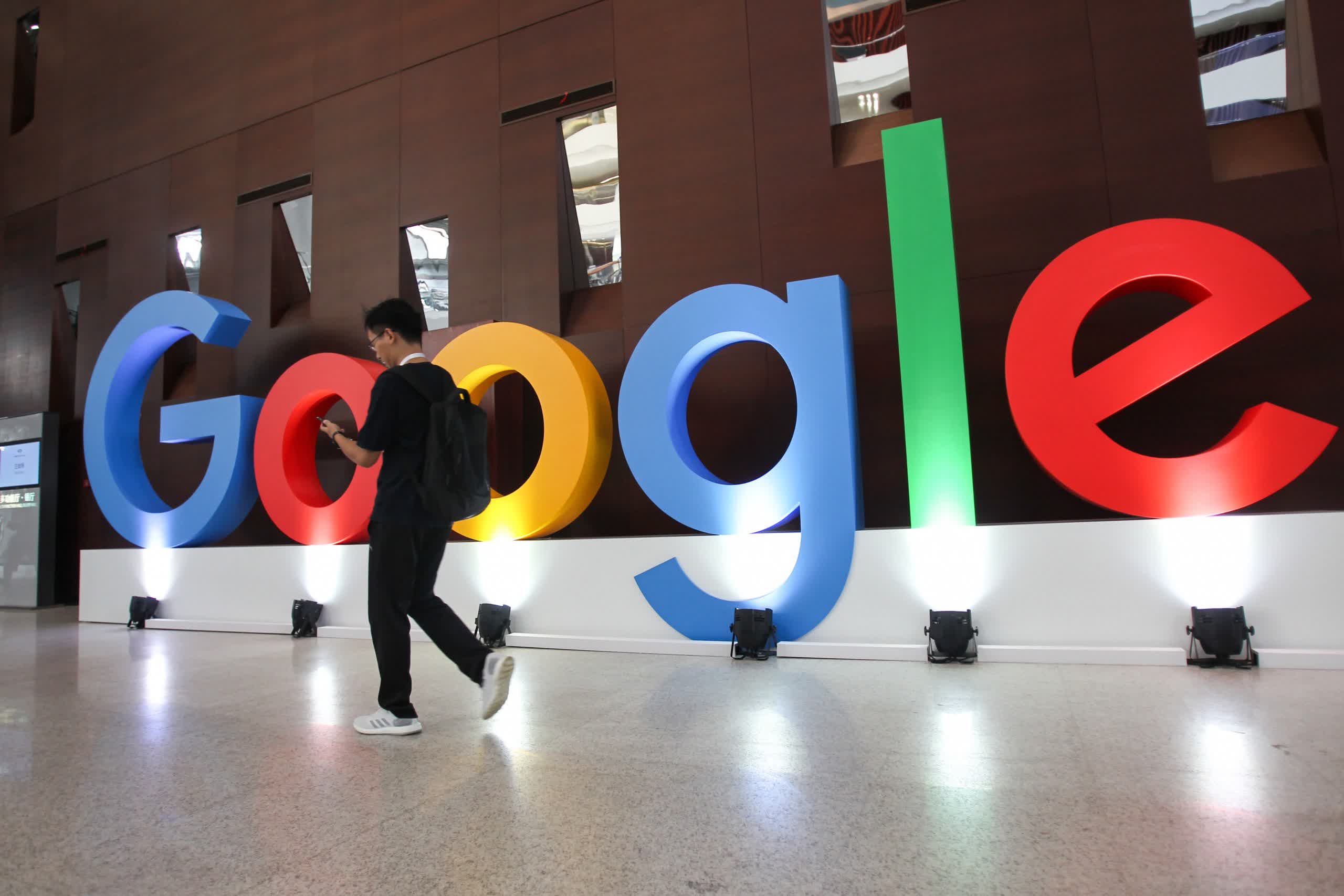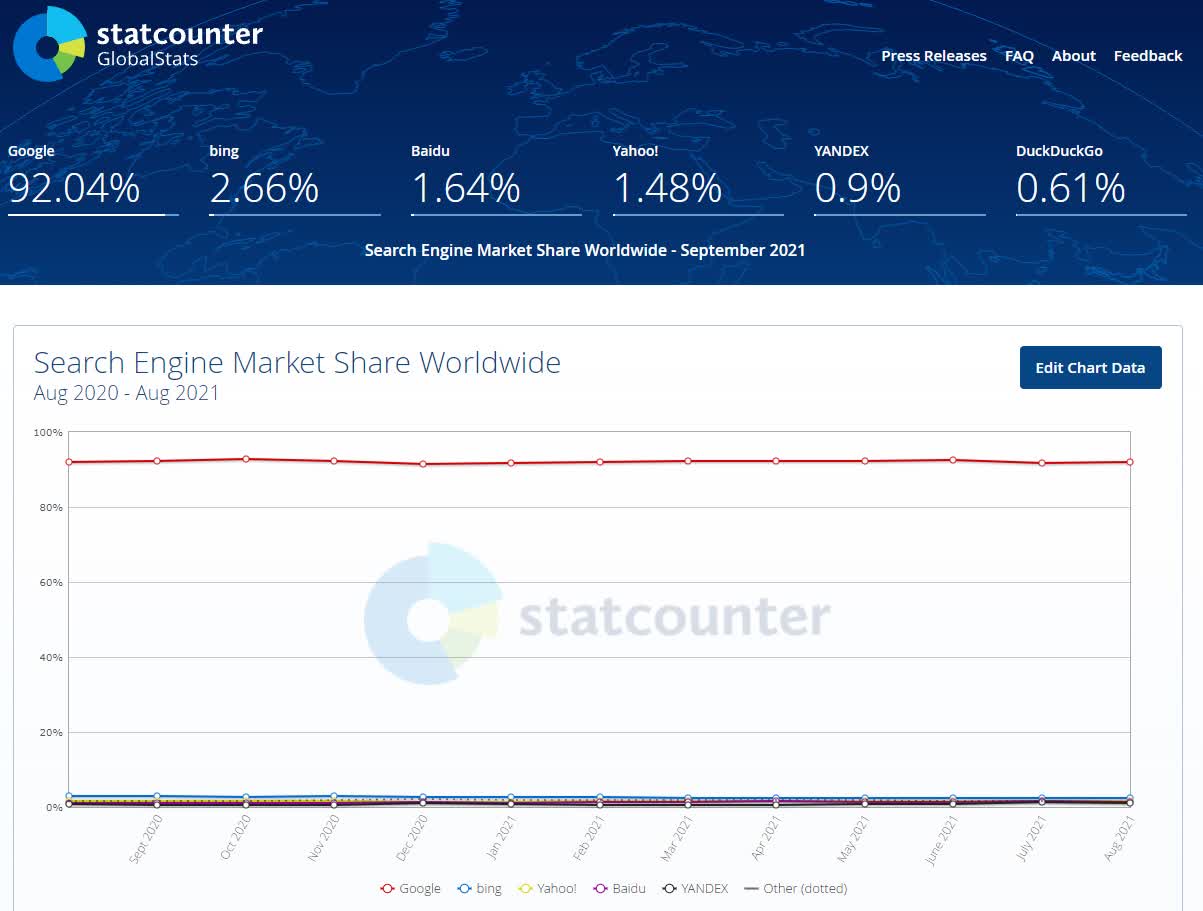Why it matters: In an attempt to get an antitrust violation with a fine in the billions dropped, a lawyer for Google pointed out this week how successful the search engine is by giving an example of how many people rush to switch to it from competitors.

In 2018 the European Union hit Google with a €4.34 billion (around $5 billion) fine for an antitrust violation. The infraction concerned how Google required Android device manufacturers to pre-install its search engine and Chrome browser to be granted a license to the Google Play store. EU regulators also claimed manufacturers who pre-installed Google software weren't allowed to use Android forks. An EU commissioner said this stifles competition and innovation.
Bloomberg notes that Google is still trying to get the fine overturned, and this week, it told an EU general court in Luxembourg that its search engine is just that popular.
"We have submitted evidence showing that the most common search query on Bing is by far Google," said Alphabet Inc. (Google's owner) lawyer Alfonso Lamadrid.

Lamadrid is likely suggesting that most people use Bing simply because it's the default search engine for Windows' pre-installed Edge browser and that they immediately search for a way to switch to Google.
"People use Google because they choose to, not because they are forced to," Lamadrid said. "Google's market share in general search is consistent with consumer surveys showing that 95% of users prefer Google to rival search engines."
According to StatCounter, Google has 92 percent of the search engine market share, with Bing in second place at 2.66 percent.
Last month Bernstein Wealth Management estimated that Google might pay Apple as much as $15 billion this year to ensure that Google remains the default search engine on Apple devices, including iPhones.
https://www.techspot.com/news/91536-google-tells-eu-court-top-search-query-bing.html